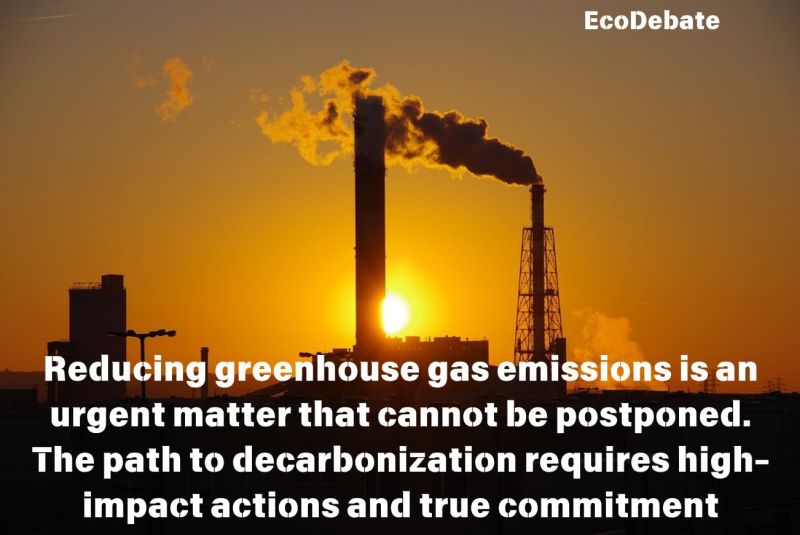Urgency and path to decarbonizing the brazilian economy

[Urgência e caminho para a descarbonização da economia]
In the face of the climate crisis, reducing greenhouse gas emissions is an urgent and non-negotiable priority. However, the path to decarbonization requires impactful actions and true commitment.
Isolated measures alone will not be enough to effectively and fairly reach climate goals. This process demands a deep transformation that, without societal clarity and participation, risks stagnation or, worse, becoming a tool for empty promises.
Emission reductions rely on transformation, primarily through drastically reducing fossil fuel consumption, eliminating deforestation, and restoring and rewilding at least 12 million hectares of degraded areas.
These commitments require both political will and financial investment, not just to meet goals on paper but to change the course of current economic and environmental practices. Without these structural changes, we will continue to perpetuate a scenario of environmental destruction and climate instability.
Moreover, the mass electrification of public transportation must be prioritized, reducing dependence on fossil fuels and expanding access to sustainable transportation options. In the industrial sector, funding and a shift toward low-carbon production are essential. For this transition to be just and inclusive, it must involve all sectors of society, ensuring dignified employment and opportunities for everyone.
Investments in renewable energies, such as solar and wind, are crucial. However, these projects should be carried out responsibly and sustainably, respecting local communities and minimizing negative environmental impacts. Likewise, energy efficiency programs are essential to reduce energy consumption, avoid waste, and optimize resource use.
To achieve this appropriately, a clear and transparent program is indispensable, with social oversight and rigorous planning. This means setting targets, timelines, and budgets for each action, involving both public and private resources.
The public must know where and how these resources are being applied and the expected returns in terms of sustainability and economic development. Only with transparency will it be possible to monitor and hold accountable the fulfillment of these targets, ensuring these actions do not become empty promises.
Decarbonizing the economy is a complex challenge, but it is also an opportunity to rethink our development models. With commitment and responsibility, Brazil can assume a leadership position in the fight against climate change.
However, both the public and private sectors must commit genuinely and transparently, ensuring that the transformation process is guided by a long-term vision that prioritizes societal well-being and environmental preservation.
Editorial by Henrique Cortez, journalist and environmentalist.
in EcoDebate, ISSN 2446-9394
[ Se você gostou desse artigo, deixe um comentário. Além disso, compartilhe esse post em suas redes sociais, assim você ajuda a socializar a informação socioambiental ]
A manutenção da revista eletrônica EcoDebate é possível graças ao apoio técnico e hospedagem da Porto Fácil.
[CC BY-NC-SA 3.0][ O conteúdo da EcoDebate pode ser copiado, reproduzido e/ou distribuído, desde que seja dado crédito ao autor, à EcoDebate com link e, se for o caso, à fonte primária da informação ]